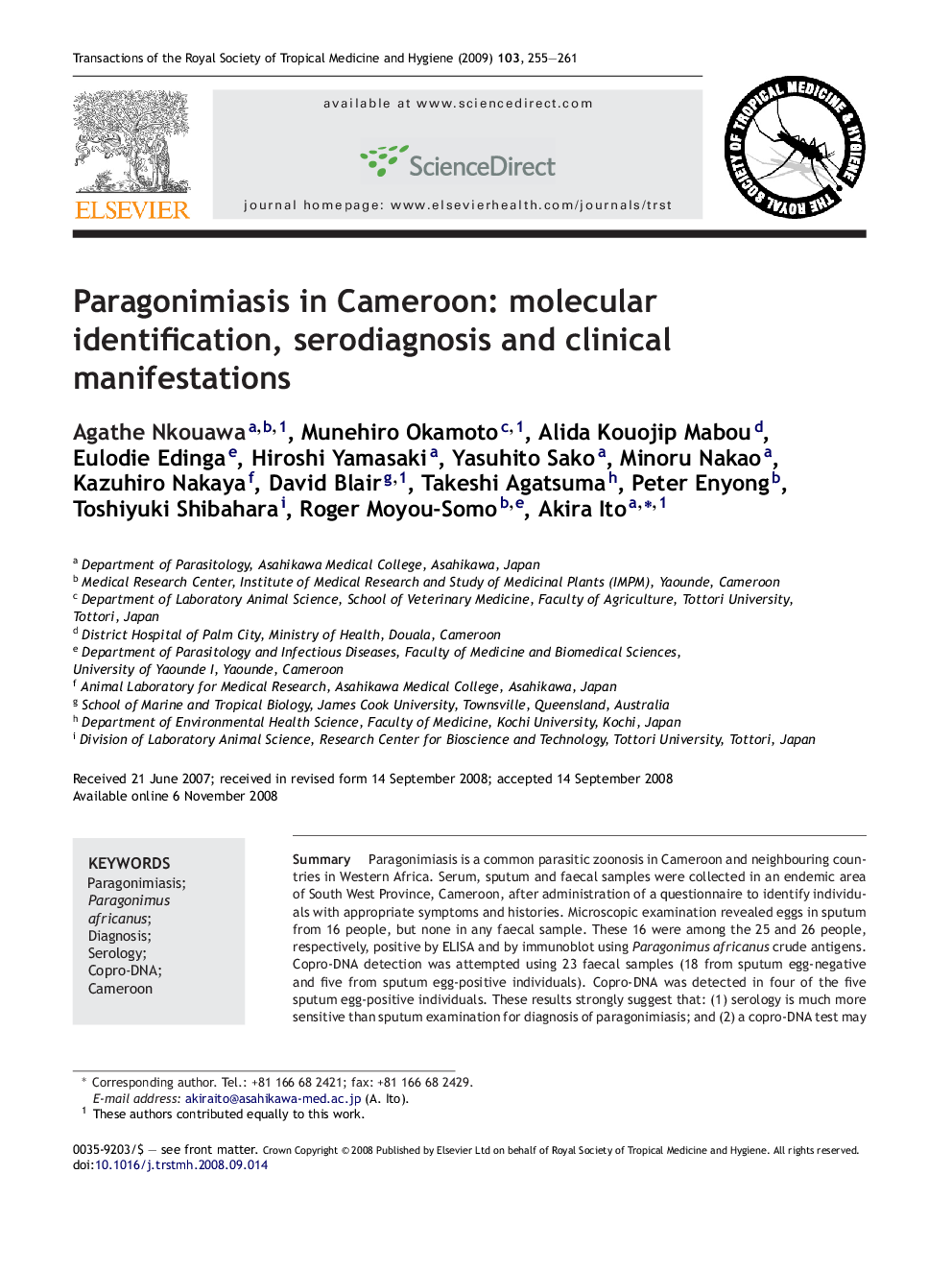| Article ID | Journal | Published Year | Pages | File Type |
|---|---|---|---|---|
| 3421252 | Transactions of the Royal Society of Tropical Medicine and Hygiene | 2009 | 7 Pages |
Abstract
Paragonimiasis is a common parasitic zoonosis in Cameroon and neighbouring countries in Western Africa. Serum, sputum and faecal samples were collected in an endemic area of South West Province, Cameroon, after administration of a questionnaire to identify individuals with appropriate symptoms and histories. Microscopic examination revealed eggs in sputum from 16 people, but none in any faecal sample. These 16 were among the 25 and 26 people, respectively, positive by ELISA and by immunoblot using Paragonimus africanus crude antigens. Copro-DNA detection was attempted using 23 faecal samples (18 from sputum egg-negative and five from sputum egg-positive individuals). Copro-DNA was detected in four of the five sputum egg-positive individuals. These results strongly suggest that: (1) serology is much more sensitive than sputum examination for diagnosis of paragonimiasis; and (2) a copro-DNA test may be more sensitive than a microscopic search for eggs in faeces. Molecular sequence data from ITS2 and cox1 genes confirmed that adult worms experimentally raised in cats were P. africanus and that eggs from sputum or other worm products from human faeces also belonged to this species. Based on these results, 26 of 168 persons (15.5%) were diagnosed as suffering from paragonimiasis.
Related Topics
Life Sciences
Immunology and Microbiology
Applied Microbiology and Biotechnology
Authors
Agathe Nkouawa, Munehiro Okamoto, Alida Kouojip Mabou, Eulodie Edinga, Hiroshi Yamasaki, Yasuhito Sako, Minoru Nakao, Kazuhiro Nakaya, David Blair, Takeshi Agatsuma, Peter Enyong, Toshiyuki Shibahara, Roger Moyou-Somo, Akira Ito,
